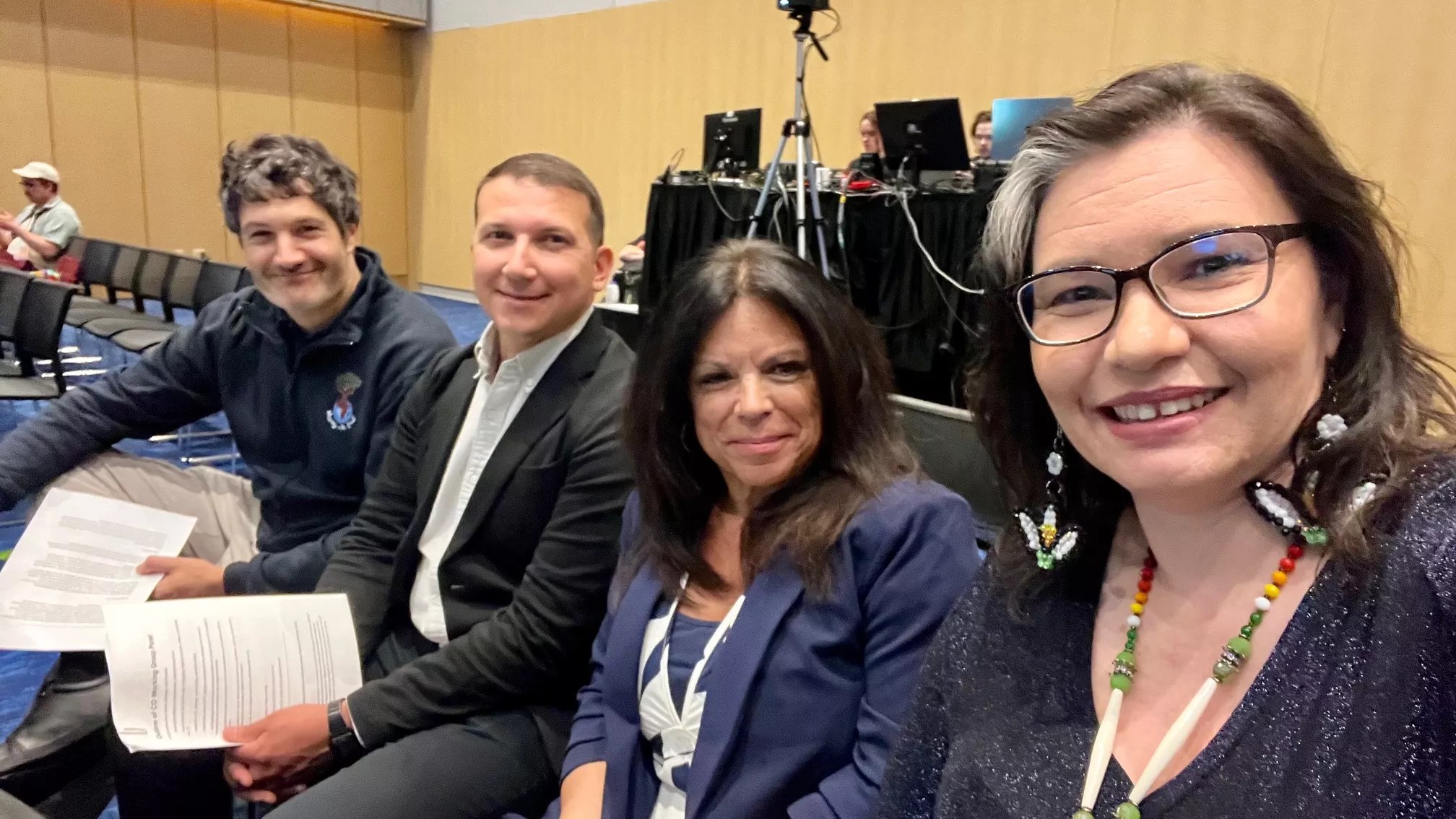
Flickr/Todd Mecklem

Audio By Carbonatix
A state-mandated report released last month by an advisory group of tribal members and Indigenous people recommends that Colorado halt the implementation of regulated psilocybin therapy and refrain from creating similar therapeutic offerings for mescaline, ibogaine and DMT in healing centers when it’s able to do so on June 1, 2026.
Colorado voters passed Proposition 122, the Natural Medicine Health Act, in 2022, decriminalizing those four natural psychedelics and introducing a framework for therapeutic use; voters also approved psilocybin for therapeutic use, with the other three natural medicines up for review by the Department of Regulatory Agencies for similar legal designations. In 2023, the Colorado Legislature passed a law creating more regulations and government bodies involved with psychedelics, including the Federally Recognized American Tribes and Indigenous Community Working Group. That working group was tasked with studying issues related to legalizing and regulating natural medicines as well as the effect of legalization and regulation on Indigenous people and communities, and making recommendations to DORA and the state Natural Medicine Board.
The working group focused on four issues:
- Avoiding misappropriation and exploitation of Indigenous people, communities, cultures and religions
- Avoiding the excessive commercialization of natural medicine
- Conservation issues with natural medicine products, like peyote
- Best practices to build trust between tribes and Indigenous communities and state agencies and law enforcement to avoid “burdens and criminalization of traditional, tribal and Indigenous uses of natural medicine.”
The group convened monthly from May 2024 to February 2025. Its authorized report, filled with analysis and recommendations by these Indigenous leaders, landed rather quietly when it was published on June 12, despite coming to pretty stark conclusions, including a recommendation to stop portions of the Natural Medicine Health Act (NMHA) until those considerations are more effectively addressed.
According to the majority of the group, psilocybin’s clinical use status should be paused until working group recommendations are “fully reviewed, particularly regarding cultural protections and equitable access.” Meanwhile, DMT and mescaline should remain prohibited from legal therapeutic use over sustainability issues and cultural misappropriation, and so should iboga over “public safety concerns, limited research at high altitudes and sourcing issues tied to international regulations,” the report reads.
“By integrating these recommendations, policymakers can foster a regulatory environment that respects Indigenous sovereignty, promotes sustainability, and mitigates commercialization risks,” the report continues. “Implementing these measures effectively requires ongoing collaboration, commitment to Indigenous leadership, and continuous evaluation to adapt to emerging challenges.”
Other report recommendations include:
- Quarterly meetings between regulatory agencies and Indigenous representatives
- Ongoing research to measure NMHA’s socioeconomic and environmental impact on Indigenous communities and sacred plant populations
- Legislative adjustments to bring policies in line with Indigenous rights frameworks
- Permanent Indigenous advisory roles on the NMHA regulatory bodies
- Legal safeguards against misappropriating Indigenous knowledge
- Sustainability measures to protect endangered plant medicine species
- Public education initiatives
- Revenue-sharing with Indigenous communities via a “permanent tax on natural medicine facilities to fund Indigenous empowerment projects and environmental conservation efforts.”
In their report, working group members stress that while they don’t speak for all Indigenous voices across the country, they attempted to represent them to the best of their abilities. They also emphasize the challenges faced during the project, such as bureaucratic regulations and Colorado’s Open Meeting Law.
“These systems, inherently colonial in nature, created significant barriers for members of the group who had to navigate the differences between their own cultural worldviews and the Western regulatory and operational paradigms,” the report reads.

Lorey Bratten, Dr. Santiago Guerra, David Nassim and Dr. Christine Diindiisi McCleave at the MAPS Psychedelic Science 2025 conference
Courtesy Christine McCleave
Members of the working group include Thomas Allen from the Sac and Fox Nation of Oklahoma and Northern Arapaho tribe; Daniel Castro, a Mestizo Kichwa from Ecuador; Katsi Cook from the St. Regis Mohawk Tribe; Frank Dayish, Belinda Eriacho and Marlena Robbins of the Navajo Nation (Diné); Dr. Santiago Ivan Guerra, a Coahuiltecan; and Terry G. Knight, Sr. and Councilman Darwin Whiteman Jr. of the Ute Mountain Ute Tribe. The group facilitator was Christine McCleave of the Turtle Mountain Anishinaabe (Ojibwe) Nation.
In the report, working group members say their knowledge and labor were exploited while perpetuating commodification and colonialism. They also characterize the government’s engagement as “short-term and lacking the trust-building relationships necessary for a long-term collaboration,” and add that they believe the group’s creation via a legislative amendment was seen as an afterthought and hindered proper incorporation of its recommendation prior to the program’s launch.
There are nuances to their findings, illuminated in the individual working group members’ statements within the report. After recounting the peyote ceremony that introduced her to midwifery more than fifty years ago, for example, Cook says she supports legalization of traditional medicines to bring coherence to the field and mitigate harm to the sacred medicines and the Indigenous communities that use them.
Eriacho abstained from the votes on mescaline and DMT, and notes that she believes synthetic sacred medicines will be important moving forward. According to Robbins, her psychedelic journey began when she worked to heal herself, but she is still concerned about corporations patenting traditional practices and sacred medicines.
“True reckoning demands that non-Indigenous participants in the psychedelic movement reflect on their own roles within colonial histories and systems,” Robbins adds.
The cover page – a letter from Sam Delp, director of the Division of Professions and Occupations in the Department of Regulatory Agencies – notes that the report “cannot be construed as the findings of” state agencies, and that the agencies “reserve the right to evaluate this report, and any additional information, and establish its own policies, decisions, and recommendations.” Delp did not return a request for comment.
It’s doubtful that the working group’s recommendations will suddenly halt the psilocybin healing centers that are just now coming online across the state, but non-Indigenous psychedelics advocates would be well-served by studying the working group’s report and absorbing its concerns.
The working group has not been disbanded, and is still subject to the state’s open meetings law. Westword reached out to members as well as its facilitator, but none would speak on the record.